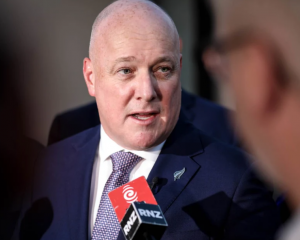
Associate Health Minister Tariana Turia, who sits outside the Cabinet, last year spoke supportively of tobacco tax increases in a speech that has put pressure on the Government on a range of tobacco policies.
Increasing the tax was "worth exploring if we are genuine about wanting to prevent uptake" of smoking, she said.
An acting deputy director-general at the ministry, Dr Ashley Bloomfield, has said officials had advised Mrs Turia on a tobacco tax rise.
"No final decisions have been taken, but it's something that's definitely being considered.
"We do know there's good evidence that increasing the price - and increasing taxes is the way governments can increase the price - does affect smoking rates; young people are particularly sensitive to increases in price."
The excise tax on tobacco was last increased above the rate of inflation in 2000.
Smokers spend about $1.6 billion a year on tobacco, of which more than $1 billion is excise tax and GST.
Last year, the excise tax was about $6 for a $10 pack of 20 cigarettes, but because it is levied by tobacco content rather than per cigarette, roll-your-own smokes, which tend to be thinner, are in effect taxed more lightly than factory-made cigarettes.
Yet rollie smokers have been shown in research to suck out 28% more smoke per cigarette, potentially putting them at even greater risk of smoking-related diseases.
The excise tax is increased annually in line with the consumer price index (CPI).
Smokefree campaigners have pushed for an increase above the CPI and a double increase on loose tobacco, to bring rollies into line with factory-made cigarettes - and they appear to have Mrs Turia's support on both counts.
Smokers aged 18 or 19 are equally likely to smoke rollies or factory-mades.
But those aged 15 to 17 are significantly more likely to smoke rollies than factory-mades, mainly because they are cheaper, ministry surveys show.
In the younger group, more than 40% reported being supplied with tobacco or cigarettes by family or friends, while 60% said they bought it themselves (some got tobacco from more than one source).
The legal age to be sold tobacco is 18.
The Smokefree Coalition and its member organisations are calling for radical new policies to "denormalise" tobacco and accelerate the decline of smoking.
They will urge the Maori Affairs select committee tobacco inquiry to agree.
About 20% of adults and 12% of year 10 pupils smoke regularly, but the rate of decline has slowed and the Maori and Pacific rates are still significantly higher than average.
A rising percentage of young people have never had a puff, which it is hoped will flow through into reduced adult smoking.
Deaths from smoking are declining, because of reduced smoking rates since the 1970s, but it still kills more than 4500 people a year.
It remains New Zealand's biggest cause of preventable illness and death.
Half of long-term smokers die from smoking-related illnesses and lose, on average, 15 years of life.
- Martin Johnston.












